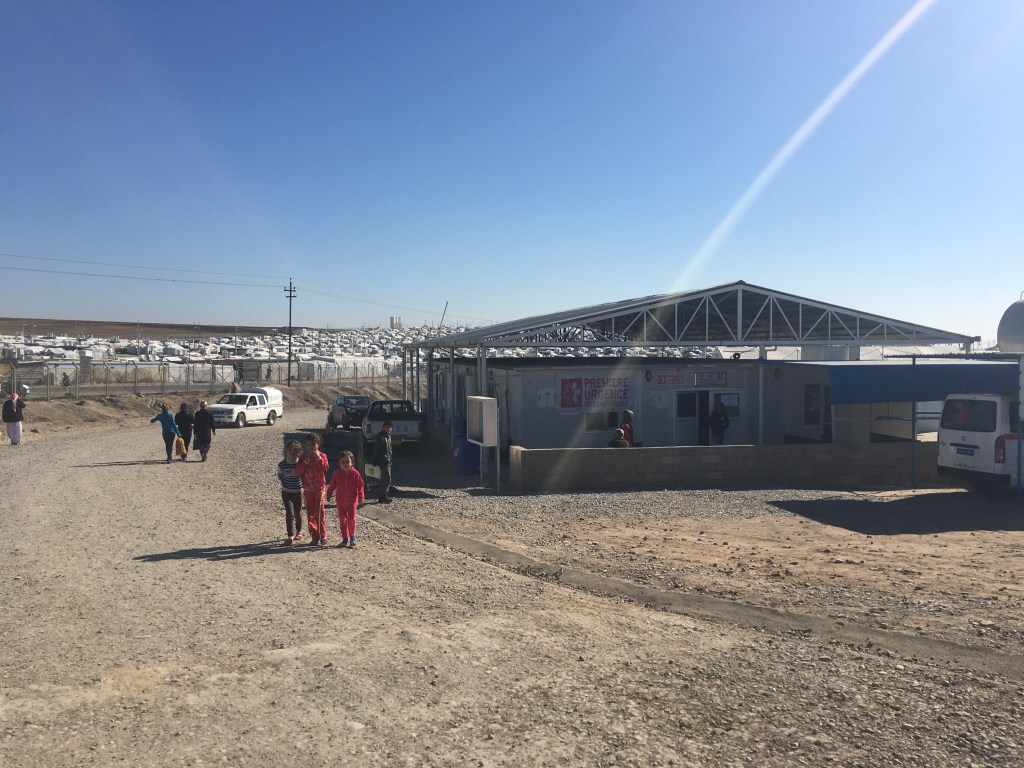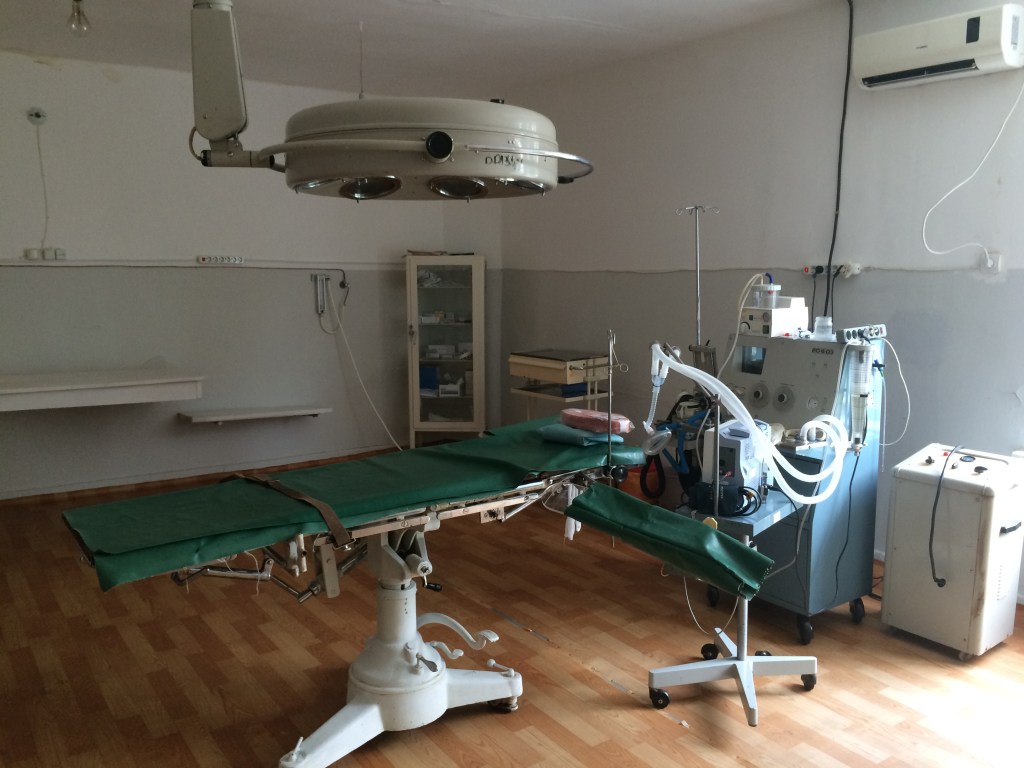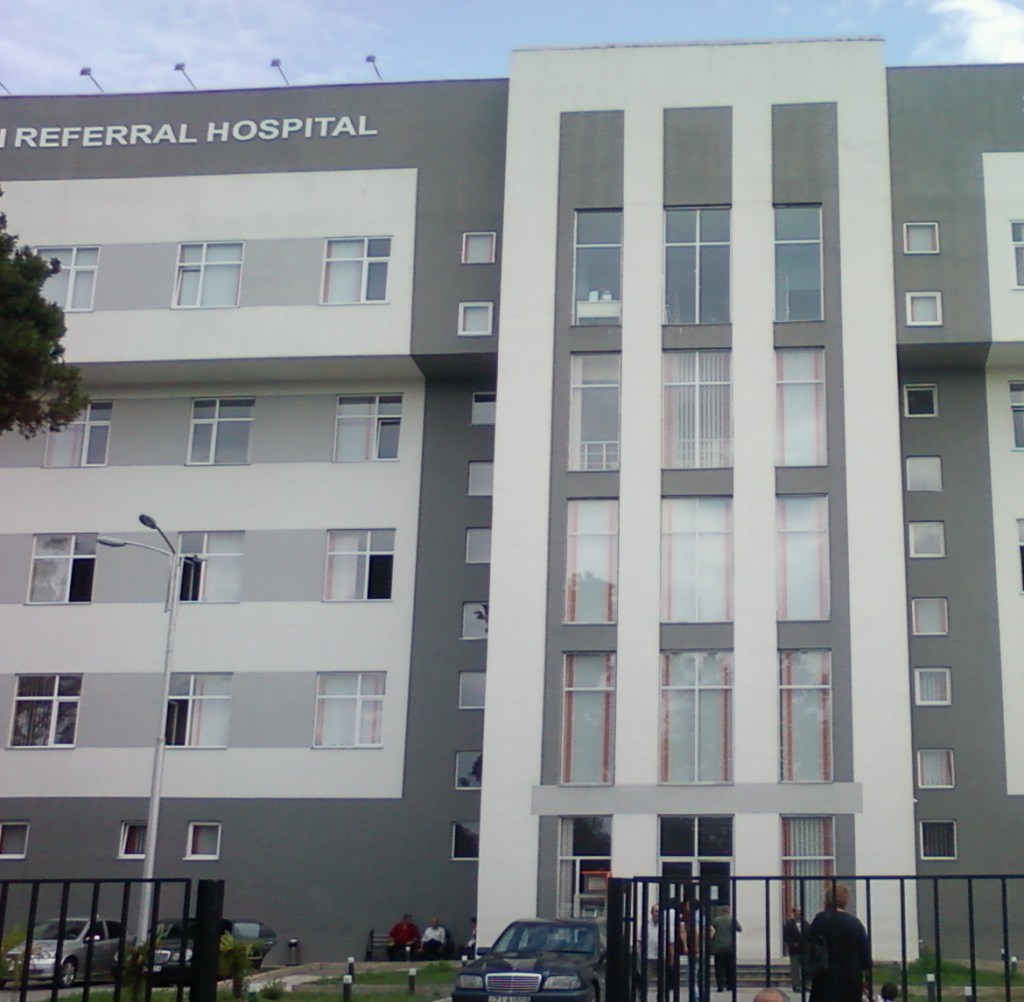
ACCREDITATION SANS FRONTIERES
PROMOTING
INTERNATIONAL HEALTHCARE ACCREDITATION
AND STANDARDS
IN EMERGING ECONOMIES AND FRAGILE STATES
WHO definition of quality of care is “the extent to which health care services provided to individuals and patient populations improve desired health outcomes. In order to achieve this, health care must be safe, effective, timely, efficient, equitable and people-centred.”
Healthcare Quality in Humanitarian Setting

135.7 million people are in need of humanitarian aid in 25 countries around the world (UNOCHA, 2018). Healthcare services in humanitarian settings are lack of: strong oversight or regulation of care, operate outside of formal health care systems, and patients are receiving care that may not be regulated, measured, or coordinated with other providers
Healthcare Quality in Fragile States

About 2 billion people live in fragile states and conflict settings worldwide (OECD). Fragile states and conflict settings are fertile breeding grounds for disease outbreaks (WHO, 2015). As COVID-19 (coronavirus) spreads across countries, the impact of the pandemic could be much greater in countries impacted by Fragility, conflict, and violence (World Bank, 2020)
Healthcare Quality in Emerging Economies

Between 5.7 and 8.4 million deaths occur annually from poor quality of care in low- and middle income countries, which represents between 10 and 15 percent of the total deaths in these countries (WHO, 2015)
Sustainable Development Goals
Sustainable Development Goal 3.8 “Achieve universal health
coverage (UHC), including
financial risk protection, access
to quality essential health care
services, & access to safe,
effective, quality, & affordable
essential medicines & vaccines
for all”
Accreditation of healthcare facilities in humanitarian settings
Accreditation of healthcare facilities in humanitarian settings will support improvement, help to identify and prioritise problems and allocate scarce resources based on the evidence.
Accreditation will allow assessing the effectiveness of implemented healthcare programmes aiming for a short, mid and long-term strategy to manage quality of care in humanitarian aid projects, implementation of a quality improvement circle and training for self-evaluation where it is needed.
Quality of care in humanitarian aid can be evaluated in a way that results can have the potential to help programme managers to implement improvement measures. ASF accreditation of healthcare facilities in humanitarian settings is based on four principles: simplicity, affordability, accessibility, and gradual improvement. It is crucial that participants/beneficiaries in humanitarian aid programmes should be an integral part of the accreditation process.
ASF Tolls
Hospital accreditation tool in Emerging Economies
Hospital accreditation tool in Fragile States and in Humanitarian Settings
Methodology
Definitions
Accréditation Sans Frontières | 32, Boulevard de Rochechouart, 75018 Paris – France Tél : + 33 (0) 753902263 | www.france-asf.fr | Association d’intérêt général à but humanitaire et non lucratif régie par la loi du 01/07/1901 déclarée à la Préfecture de Police Paris le 18/06/2020 RNA n° W751257030 – Insertion au Journal Officiel du 27/06/2020 – Annonce n° 1340 – SIRET n° 88807681700012 – APE n° 9499Z
